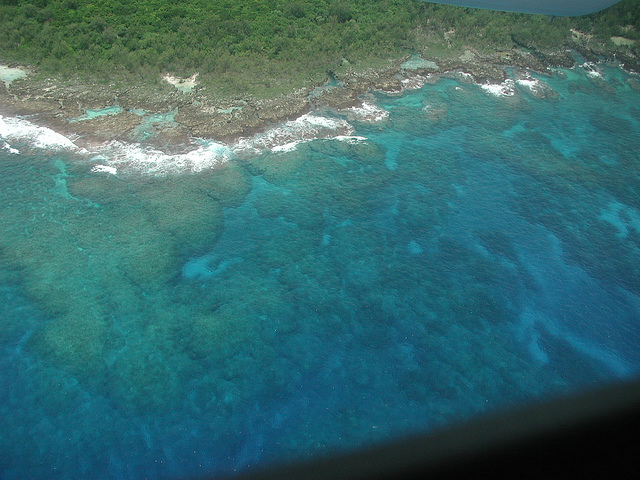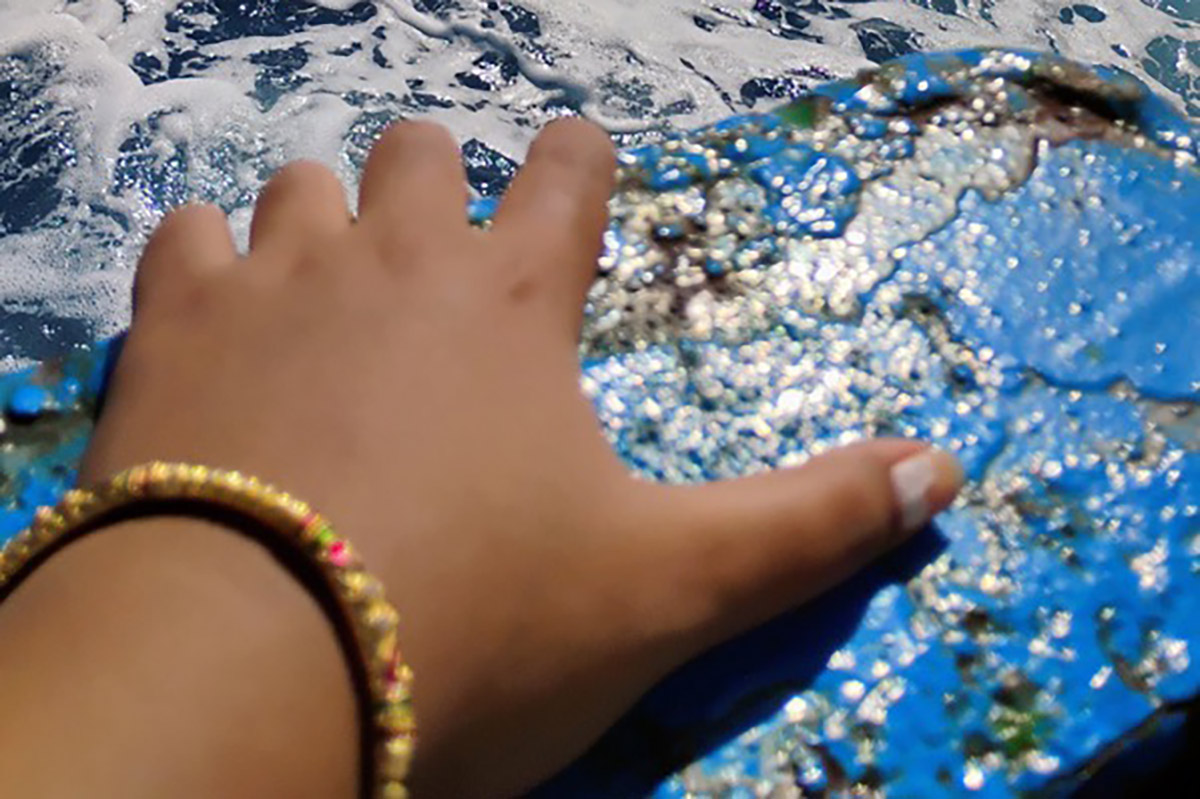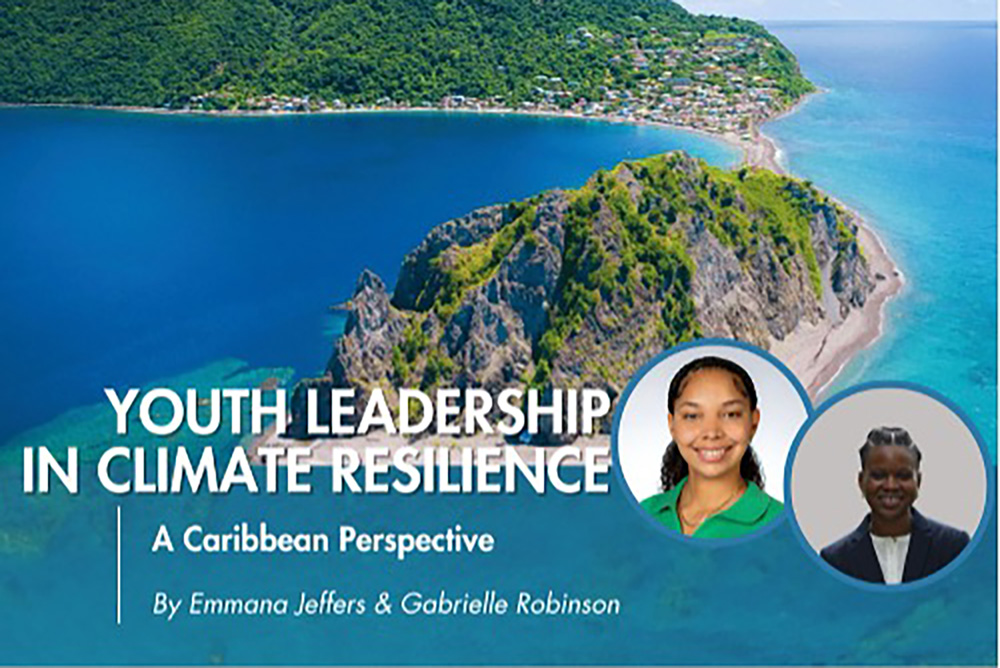SIDS 2014: "Oceans, seas, and valuable biodiversity"
August 28 Small island developing states are especially vulnerable to external economic and environmental shocks. At the Third International Conference on Small Island Developing States in Samoa, 1-4 September, the Commonwealth is partnering with the United Nations, governments and international organisations to help build the resilience of these countries.
Small island developing states are especially vulnerable to external economic and environmental shocks. At the Third International Conference on Small Island Developing States in Samoa, 1-4 September, the Commonwealth is partnering with the United Nations, governments and international organisations to help build the resilience of these countries.
The unique natural life on small islands plays a vital role in habitat and the economy, writes Shomira Sanyal, 20, a Commonwealth Correspondent from New Delhi in India, and should be a consideration in environmental and planning policies.
The process of evolution, spanning millions of years, has led to a fascinating diversity in fauna and flora on the planet. An interesting group amongst these are the endemic species occurring on various islands.
These species, unique to a defined geographical location, possess features that differ from their mainland cousins, owing to many years of adaptation to prevailing environmental conditions. For example, the Seychelles black parrot (Coracopsis nigra barklyi), the national bird of Seychelles, is only found on this group of islands, and feeds on the fruits of the endangered palm Vershaffeltia splendida, as well as the flowers of the Coco de Mer (Lodoicea maldivica), both of which are also endemic to Seychelles.
With restrictive habitats, however, most of these species lack the ability to adapt to rapid changes in the surrounding environment, and are therefore at risk from fluctuating conditions brought about by various anthropogenic and environmental pressures.
Besides contributing towards maintaining a stable ecosystem, endemic species are beneficial to the inhabitants of these islands, in that they are an important economic resource. In addition to being utilised for consumption, many island species promote tourism, especially eco-tourism, which contributes to the revenue of their respective island economies. Marine resources, in this regard, are often more beneficial than terrestrial resources, and if utilised properly, could contribute effectively to sustainable development.
The group of coastal countries that comprise the Small Island Developing States (SIDS) face similar challenges in terms of resource availability and utilisation, a vulnerability to natural disasters, as well as fragile ecosystems. Biodiversity, as mentioned earlier, is extremely vulnerable to rapid fluctuations in the ambient environment. Foremost among the reasons for a rapid decline in species populations is an anthropogenic influence. Island species are present in small numbers, and do not possess sufficient defence mechanisms against a broad range of predators and/or competitors. This makes it particularly difficult for them to survive when faced with either increased numbers of other species, or the introduction of exotic species to islands. A well-recognized example in this regard is that of the flightless dodo (Raphus cucullatus), once ubiquitous throughout Mauritius, but hunted to extinction by sailors, as well as by various domestic and exotic animals introduced to the island.
Marine species are further vulnerable to fluctuating wind and water conditions. Continental shelves and coastal areas of SIDS are economically very significant, especially in regard to the role they play in agriculture, fisheries and tourism. Coastal ecosystems help protect shorelines, and act as buffer zones by filtering some of the effects of pollution. Island ecosystems also play an important role in nutrient cycling, soil and sand formation, and the regulation of climate. The global phenomenon of climate change has been felt most keenly on SIDS and other islands, with immediate effects such as coral reef deterioration already being seen. Further effects, such as sea-level rise and an alteration of species diversity, in the face of these barren reefs, could render these islands vulnerable to natural disasters. The tourism industry, a major source of income for Small Island Developing States, could be affected, as would agricultural production and fisheries, leading to an increased dependence on imported food.
Recognising the immediacy of the situation, the Global Conference on the Sustainable Development of Small Island Developing States was held at Barbados in April 1994, to determine how small islands could cope with such situations. At present, forty-one SIDS are involved in the process of monitoring the Barbados Plan of Action by the United Nations Department of Economic and Social Affairs. An additional SIDS unit was added as a follow-up to the conference, where immediate concerns regarding planning and development in coastal regions are addressed. Certain SIDS are also party to the Convention on Biological Diversity (CBD), the Convention on International Trade in Endangered Species of Wild Fauna and Flora (CITES), as well as the Convention on Conservation of Migratory Species of Wild Animals (CMS).
With the inhabitants of SIDS heavily dependent on biodiversity resources for their survival and income, it is imperative that steps are taken now to protect this rich heritage. Coral reef restoration, stricter laws pertaining to wildlife protection, strategies for coastal zone protection and ecologically-sound land reclamation practices need to be advocated to prevent these island nations from environmental threats to their existence. Although each SIDS is unique in its own regard, many of the problems they face are similar, and a unified, SIDS-exclusive approach towards biodiversity conservation and restoration may prove beneficial in the years to come.
SIDS 2014
Learn more about the Commonwealth’s role at SIDS 2014:
thecommonwealth.org/sids2014
Learn more about the conference:
sids2014.org
Join the conversation online:
Twitter: @commonwealthsec
Facebook: facebook.com/commonwealthsec
hashtags: #islands2014, #cwsmallstates, #commonwealth
photo credit: ronsavage via photopin cc
………………………………………………………………………………………………………………
About me:
I am pursuing a Bachelor’s Degree in Sociology at Lady Shri Ram College, New Delhi. I enjoy reading, travelling and meeting people. I have deep interest in developmental work that will improve the lives of India’s marginalized, and have worked in rural India with NGOs and movements on the Right to Information, the Right to Food, the Public Distribution System, and the Mahatma Gandhi National Rural Employment Guarantee Scheme. I believe in the Gandhian saying, “Be the change you want to see”.
………………………………………………………………………………………………………………
Opinions expressed in this article are those of the author and do not necessarily represent the views of the Commonwealth Youth Programme. Articles are published in a spirit of dialogue, respect and understanding. If you disagree, why not submit a response?
To learn more about becoming a Commonwealth Correspondent please visit:
http://www.yourcommonwealth.org/submit-articles/commonwealthcorrespondents/
………………………………………………………………………………………………………………




